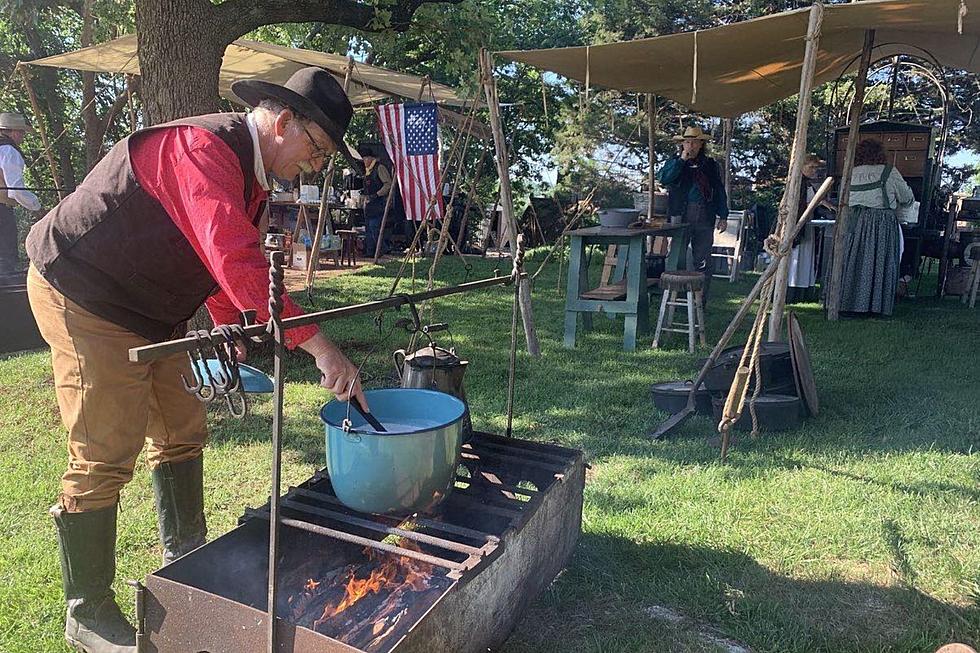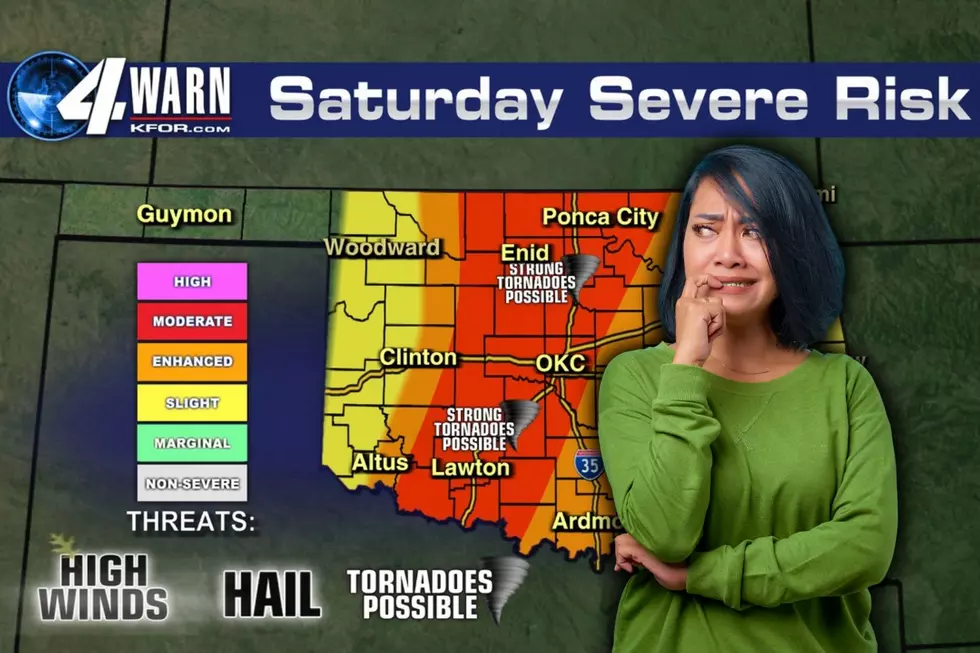
How To Protect Your Home From The Oklahoma Cold
When it comes to the weather in Oklahoma, the Sooner State is prepared for some of the hottest temperatures in the nation. Summer 2022 would serve as a case and point.
When a particularly bitter period of winter does happen to strike, more often than not, we're not only not prepared, but many are almost clueless about what to do to handle the cold.
Here's a quick rundown of things you can do in your own home to make the next few days comfortable and limit your risk of costly damage.
Keep the cold out and the warm air in.
Keeping the cold weather out of your home might seem like a no-brainer, but you have to remember that a sizeable population of Americans actually believe the earth is flat. You might think keeping the door shut is enough, but doors and windows are the most overlooked thing in the average home.
Check the threshold at the bottom of the door to see if you can feel the air moving. Do the same around the rest of the door. If there is a draft, you'll want to seal that up.
You'll get excellent insulating performance out of a product called backer rod... it's a foam rope of sorts builders use behind caulk to fill big gaps, but it also works great in door gaps.
If you don't want to spend money on it, understandable, you could also twist up paper towels to shove in the gaps around your door. It won't have the same insulation value, but it'll stop a draft.
If the draft is coming from the door you use the most, like the front or garage door, you'll want to do something else. If you're in and out of that door, you sort of have to just live with that draft, but you can still limit it by hanging a heavy blanket over the whole opening. Like a big curtain, you just move it to the side to enter/exit the home.
Windows too.
After you've taken care of the doors, check your windows. They're not as easy to weatherproof as doors, but the simple solutions are easy.
You can use pretty much anything to seal up drafty gaps. Tape is obvious, but it may leave a film. Rolled-up towels are also easy if you have them on hand. You just want to stop any air from coming in or going out.
It's also worth mentioning the amazing benefits of hanging a curtain. Air is the best insulator, so if you can provide a dead space of air between a curtain and your window, you'll notice the difference pretty quickly.
While curtains can be store-bought, you can make your own on the spot. Heavier materials work best, thick towels for instance can serve as a great temporary curtain.
Protect your pipes.
The worst fear and most expensive damage the cold can do to your home is in your plumbing. A busted pipe is not cheap to fix, and it often means doing without water until someone can get out to fix it. Take the easy precautions.
Cover your outdoor faucets with a cheap foam faucet cover. They cost only a few dollars but pay a major dividend in preventing freeze damage.
If you have water pipes on an outside wall, perhaps running to the kitchen or bathroom sink, you can simply open your cabinets to allow warm air into the space. If you have a vanity that isn't connected to the wall, you might want to let them drip. It'll cost you more in water, but pennies as compared to a busted pipe and ruined wall.
Stay comfortable.
The biggest fear most people have during a winter weather event is a power outage. While the current forecast doesn't imply a risk that the electricity will be out, you really never know. Ice and snow aren't the only plagues of nature that affect the grid.
In an ideal world, you'd have a gas furnace, but natural gas isn't really popular in military towns where people build for renters.
While some gas furnaces still exist in the floor or wall of older homes, gently radiating heat out from them, they're more commonly used in the HVAC system. They've become so efficient that even the smallest generators can keep your heater going. It doesn't take much to run the circulation fan or jump off the ignitor.
Leave the generator running outside, crack a window to run your extension cord in, and tape over the rest of the window gap to prevent the draft, cover with a towel to insulate.
But I don't have gas.
If you don't have natural gas in your home and you're worried about a power outage, it's all good. There are things you can do to stay warm.
There has been a trend on social media to use candles and clay pots to make heat. While it does work, there are inherent warnings you may not be aware of. First and foremost, the terracotta pots have to be unused.
Clay soaks up water when you water your plants. A little candle is enough to get these clay pots hot enough to steam. When the moisture in a pot reaches the point of steam, they have a tendency to explode pretty violently which is why most experts recommend against this method.
Electric heat.
While space heaters can cause fires when used improperly or without supervision, they're an easy and quick way to heat a small space.
Obviously, they're no good to you if your power is out, but most will run on a small generator.
Even the best space heaters won't heat your home. They're not made to work like that. Instead, use it in the smallest room you can all be comfortable living in for a few days.
What about the stove?
While burning your gas stove to heat your home may seem like a good idea, you're entering a territory of dangerous thought. Gas burns really efficiently but they still contribute carbon monoxide to your home.
Using the gas range to cook dinner for a short period of time doesn't produce a whole lot, but using it for hours on end does. This goes double for burning a gas stove with the door open.
Ah, the fireplace.
Wrong, probably.
Sealed and efficient fireplaces are great for heating spaces. They typically will have a fan to recirculate cold air around the fire to make hot air. These are lifesavers in the colder parts of the world... but it'd be rare to find one in your home in Southwest Oklahoma.
If your fireplace burns wood, and that fire is open to the room or behind a mesh screen, it's not going to warm up your house. In fact, it's going to draw warm air out of your house and right up your chimney.
The radiant heat may feel good on your cold bones, but it's like quenching your thirst with salt water.
What about food?
The quality of your meals depends entirely on the amenities in your home. If your kitchen is all electric and you have no power, it's cold food for you unless you have a grill.
If your grill is propane, you'll likely have a hard time getting it to flame up. Propane just doesn't burn well when it's cold.
If you have a proper charcoal grill, you're golden. Cook as much as you want and as long as your frozen fingers can stand it.
It should go without saying, but this was a trend in Texas during the 2021 blizzard... Do not bring your grill inside to cook or try to use it as a heat source. Dozens of people won Darwin awards by dying from carbon monoxide poisoning doing this.
Eleven Things Oklahoman's Eat When It's Cold
Gallery Credit: Kelso
The Frozen Wichita Mountains
Gallery Credit: Kelso
16 Oklahoma Phrases That Would Stump Out-of-Towners
Gallery Credit: Kelso
9 Chain Restaurants Founded In Oklahoma
Gallery Credit: Kelso
Unique Last Minute Oklahoma Gifts
Gallery Credit: Kelso





